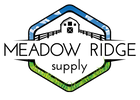Understanding Colic in Horses: Causes and Prevention
Share
Understanding Colic in Horses: Causes and Prevention
Horses are magnificent animals, but their unique digestive systems can make them prone to certain health issues. One of the most common concerns for horse owners is colic. In this blog, we’ll explore what colic is, how modern feeding practices contribute to its occurrence, and what steps you can take to reduce the risk—including the benefits of providing high-quality food and hay.
What is Colic?
Colic is a term that refers to abdominal pain in horses. It’s a broad condition that can range from mild discomfort to severe, life-threatening issues. Common symptoms of colic include:
- Restlessness and pawing at the ground.
- Looking back at their flank.
- Lying down and getting up repeatedly.
- Rolling or thrashing.
- Reduced or absent appetite.
- Fewer bowel movements or changes in manure consistency.
The causes of colic vary widely, from gas buildup to impaction or twisted intestines. Understanding the root of colic is essential for prevention.
What Causes Colic?
Many cases of colic in domesticated horses stem from feeding practices that differ greatly from the natural grazing habits of their wild ancestors.
- Grazing vs. Modern Feeding: Wild horses are natural grazers. They spend most of their day eating small amounts of fibrous grasses, which helps maintain a steady flow of digestion. Domesticated horses, however, are often fed two or three large meals a day. This intermittent feeding schedule can lead to digestive upsets, as their stomachs are designed for constant grazing.
- Low-Fiber Diets: Many modern diets are heavy on grains and low in fiber. Grains are calorie-dense and convenient but lack the roughage that horses need for proper digestion. Low-fiber diets can slow down gut motility, increasing the risk of impaction and gas buildup.
- Changes in Feed: Abrupt changes to a horse’s diet—whether switching grain types or introducing new hay—can upset the balance of gut bacteria, leading to digestive discomfort.
- Inadequate Hydration: Horses on dry diets or those consuming large amounts of grain need ample water to aid digestion and maintain overall health. In colder months, ensuring your horse stays hydrated is especially critical, as dehydration can increase the risk of impaction colic. Providing room-temperature water encourages horses to drink more, even in chilly weather. To learn more about why winter hydration is essential and tips to keep your horse drinking, check out this blog post on the importance of keeping your horse hydrated in the winter.
What Can You Do to Prevent Colic?
Preventing colic involves adopting feeding and management practices that align with a horse’s natural digestive needs. Here are some key steps:
- Provide High-Quality Forage: Ensuring your horse has access to clean, high-quality hay is one of the best ways to promote digestive health. Meadow Ridge Supply offers options like Compressed Pure Timothy Hay, Alfalfa Hay, and Orchard Grass/Alfalfa Mix, which provide essential fiber to keep your horse’s gut moving efficiently.
- Offer Small, Frequent Meals: Mimic natural grazing habits by providing smaller portions of food throughout the day instead of large meals. Slow feeders and hay nets can also encourage horses to eat more slowly, reducing the risk of gulping and digestive upset.
- Balance Grain Intake: If grain is part of your horse’s diet, ensure it’s fed in moderation and paired with ample roughage. Some believe that a diet high in grain can lead to colic. Consider low-starch, high-fiber options like Tribute Kalm N Ez Pellets, which support digestive health while meeting nutritional needs.
- Ensure Proper Hydration: Provide clean, fresh water at all times, especially when feeding dry forage or grain. During colder months, consider offering lukewarm water to encourage drinking.
- Avoid Sudden Diet Changes: Gradually introduce new feeds or hay types over 7-10 days to allow the digestive system to adjust.
- Regular Dental Care: Ensure your horse’s teeth are checked and floated regularly, as dental issues can make it difficult for them to chew food properly, leading to poor digestion.
Partnering with Meadow Ridge Supply
At Meadow Ridge Supply, we understand how crucial proper nutrition is for preventing colic and keeping your horse happy and healthy. That’s why we offer a range of high-quality hay and feed options designed to meet your horse’s dietary needs. Whether you’re looking for premium hay, bedding, or grain, we’re here to support your horse’s health every step of the way.
By aligning your feeding practices with your horse’s natural grazing habits and providing top-notch nutrition, you can reduce the risk of colic and ensure your horse thrives for years to come.

